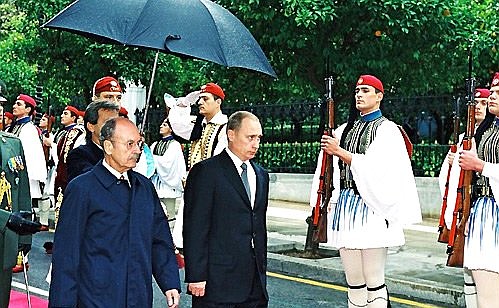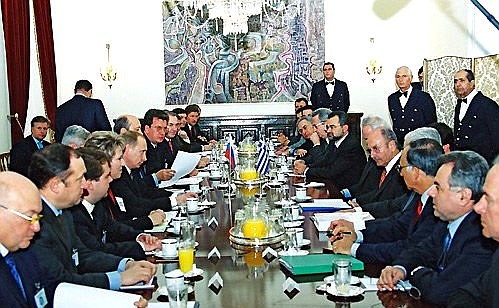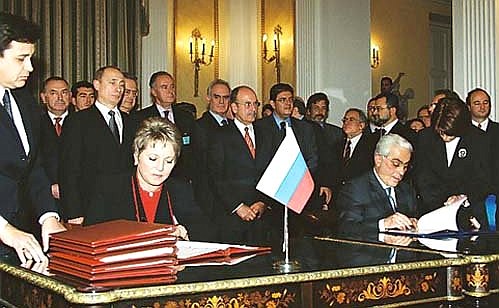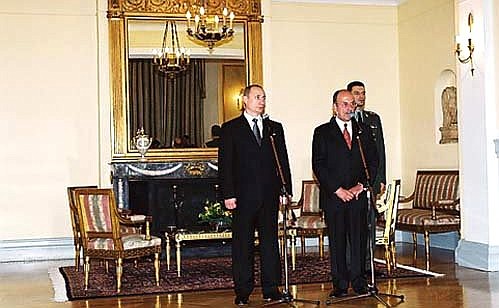At the end of the negotiations, six bilateral agreements were signed.
The key agreement concerned cooperation between the two countries in the fuel and energy sector, including oil and gas industries and power generation. It was also planned to jointly produce, process and transport energy resources, promote relations and develop direct contacts between companies and organisations concerned, and exchange information and data necessary for forward-looking projects. The sides said they were ready to invite third countries to cooperate.
The two parties also signed a programme for Russian-Greek cultural and scientific cooperation in 2002–2004 and an agreement on cooperation in combating crime.
In addition, they concluded agreements on air service, merchant shipping, and establishing and running of each other’s cultural centres in Moscow and Athens.
Mr Putin and Mr Stephanopoulos gave a news conference.
Mr Putin pointed out the dynamic development of Russian-Greek relations. He said that since Mr Stephanopoulos’ Moscow visit in the summer of 2000, bilateral trade increased by 40%, and new opportunities opened up in such areas as transport, energy and high technologies.
After recalling the established traditions of cooperation between the two countries in military technology, Mr Putin said that he looked forward to its further development. At the same time, he stressed that Russia did not claim any special role, but expected equal treatment in arms tenders in Greece.
The President said he was opposed to redrawing the borders in the Balkans. He underscored that resolution 1244 of the UN Security Council and other decisions of the international community must be strictly observed. In his view, the community should deal more harshly, firmly and consistently with those who want to resolve political issues by violence.
After expressing his support for a deeper dialogue between the Greek and Turkish communities in Cyprus, Mr Putin said that Russia’s position on the Cypriot issue proceeded from the need for dialogue between the two communities under the auspices of the UN Secretary-General.
Mr Stephanopoulos pointed to the importance of Russia’s participation in the Balkan settlement process. Russia’s experience and its desire to contribute to the settlement were very valuable, he said.



